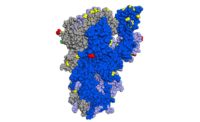Beginning next year, Hungarian food manufacturers will have to pay a tax of 10 forint ($.05) for foods containing fat, sugar and salt that exceed certain threshold levels. Earlier this month, the Hungarian legislature passed the tax in an effort to offset public health costs. The legislation also increased the tax on liquor and soft drinks by 10%.
According to the Global Post, initial estimates project annual tax revenues at 30 billion forint ($160 million). The monies would be applied to offsetting Hungary’s national care debt, which exceeds $530 million.
The CIAA, a European food and drink lobby group, says the tax is "discriminatory" because they target specific types of food and tend to affect low-income groups the most. It also says that such taxes tend to be ineffective when it comes to changing eating habits, citing Denmark’s candy tax, which has been in effect since 1922. Despite the tax, obesity rates have risen in Denmark.
According to statistics compiled by the OECD (Organization for Economic Development) 2010 Factbook, nearly 19% of Hungarians were ranked obese in 2010, and more than half were listed as either overweight or obese.




